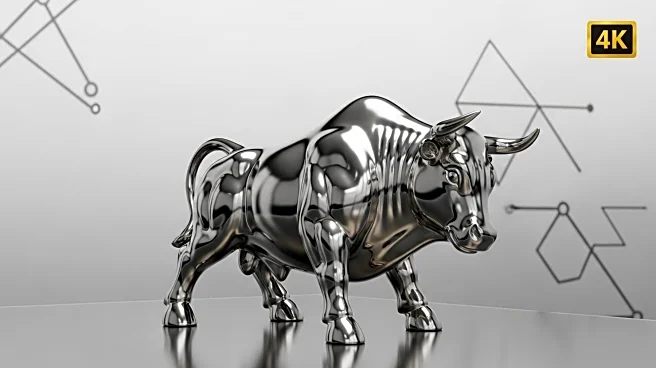What is the story about?
What's Happening?
Jim Cramer's Charitable Trust has increased its holdings in GE Vernova by purchasing 20 additional shares at approximately $595 each, bringing the total to 90 shares. This move comes as GE Vernova's stock has been trading sideways following a significant surge in July due to a better-than-expected second quarter and an optimistic full-year outlook. Despite a recent drop from its all-time high, Cramer remains confident in the long-term demand for AI infrastructure, which is bolstered by OpenAI's recent partnerships to deploy AI data centers. Cramer adheres to a strict trading policy, waiting 45 minutes after sending a trade alert before executing trades, and 72 hours if he has discussed the stock on CNBC TV.
Why It's Important?
The decision to increase holdings in GE Vernova reflects confidence in the company's potential to benefit from the growing demand for AI infrastructure. As OpenAI secures partnerships for AI data centers, the need for reliable power sources, such as those provided by GE Vernova, becomes crucial. This move could signal a broader trend of investment in companies that support AI development, impacting the technology and energy sectors. Investors and stakeholders in these industries may see increased opportunities and challenges as they navigate the evolving landscape of AI and energy solutions.
What's Next?
As GE Vernova continues to develop its business segments, particularly in AI infrastructure, stakeholders will be watching for further strategic partnerships and technological advancements. The company's performance in the wind segment remains a concern, but recent updates have priced in potential setbacks. Investors will likely monitor GE Vernova's ability to capitalize on the growing demand for AI infrastructure and its impact on stock performance. Additionally, Cramer's trading strategies and market insights will continue to influence investment decisions within his charitable trust.
Beyond the Headlines
The investment in GE Vernova highlights the intersection of technology and energy sectors, emphasizing the importance of sustainable and efficient power solutions in the age of AI. As companies like OpenAI expand their operations, the demand for energy-efficient technologies will likely drive innovation and investment in renewable energy sources. This development could lead to long-term shifts in how industries approach energy consumption and sustainability, impacting regulatory policies and corporate strategies.















